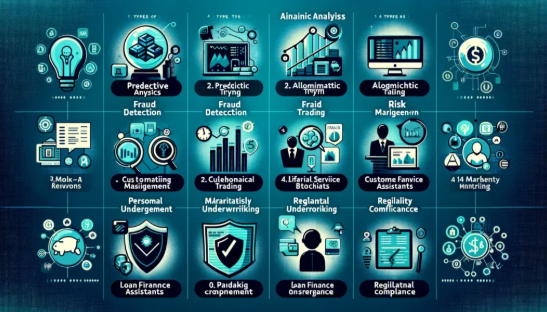Artificial Intelligence (AI) is significantly reshaping the finance industry, transforming how institutions operate, manage risk, and engage with customers. The impact of AI in finance spans operational efficiency, decision-making, security, and customer experience, driving a fundamental shift in the sector.
1. Enhanced Efficiency and Automation
AI automates repetitive and time-consuming tasks such as data entry, compliance checks, and transaction processing. This automation reduces human error, lowers operational costs, and accelerates workflows, enabling financial institutions to operate more efficiently.
2. Improved Risk Management
AI’s ability to analyze large volumes of data helps identify potential risks and market anomalies early. Machine learning models predict credit risks, market fluctuations, and fraud attempts with higher accuracy, allowing firms to mitigate losses and enhance financial stability.
3. Personalized Customer Experiences
AI-driven insights enable personalized financial products and services. From customized investment advice to real-time support through chatbots, AI enhances customer engagement, satisfaction, and loyalty.
4. Advanced Fraud Detection and Security
AI systems detect fraud by analyzing transaction patterns and user behaviors in real time. Continuous learning helps these systems adapt to evolving threats, improving security and protecting assets.
5. Smarter Investment Decisions
Algorithmic trading powered by AI analyzes market data, news, and economic indicators at high speed to execute trades with minimal human intervention. This improves portfolio performance and capitalizes on market opportunities efficiently.
6. Regulatory Compliance and Reporting
AI assists in regulatory compliance by automating monitoring, reporting, and risk assessments. This reduces the burden on compliance teams and ensures adherence to complex financial regulations.
7. Democratization of Financial Services
AI-powered platforms make sophisticated financial tools accessible to a broader audience. Robo-advisors provide affordable investment management, while AI-driven credit scoring opens lending opportunities to underserved populations.
8. Innovation and Competitive Advantage
Institutions that adopt AI technologies can innovate faster and gain a competitive edge. AI-driven insights enable new product development, market analysis, and customer segmentation.
Conclusion
The impact of AI in finance is profound, enabling faster, smarter, and more secure financial services. As AI technologies evolve, their role will continue to expand, driving innovation and transforming the financial landscape.







Leave feedback about this